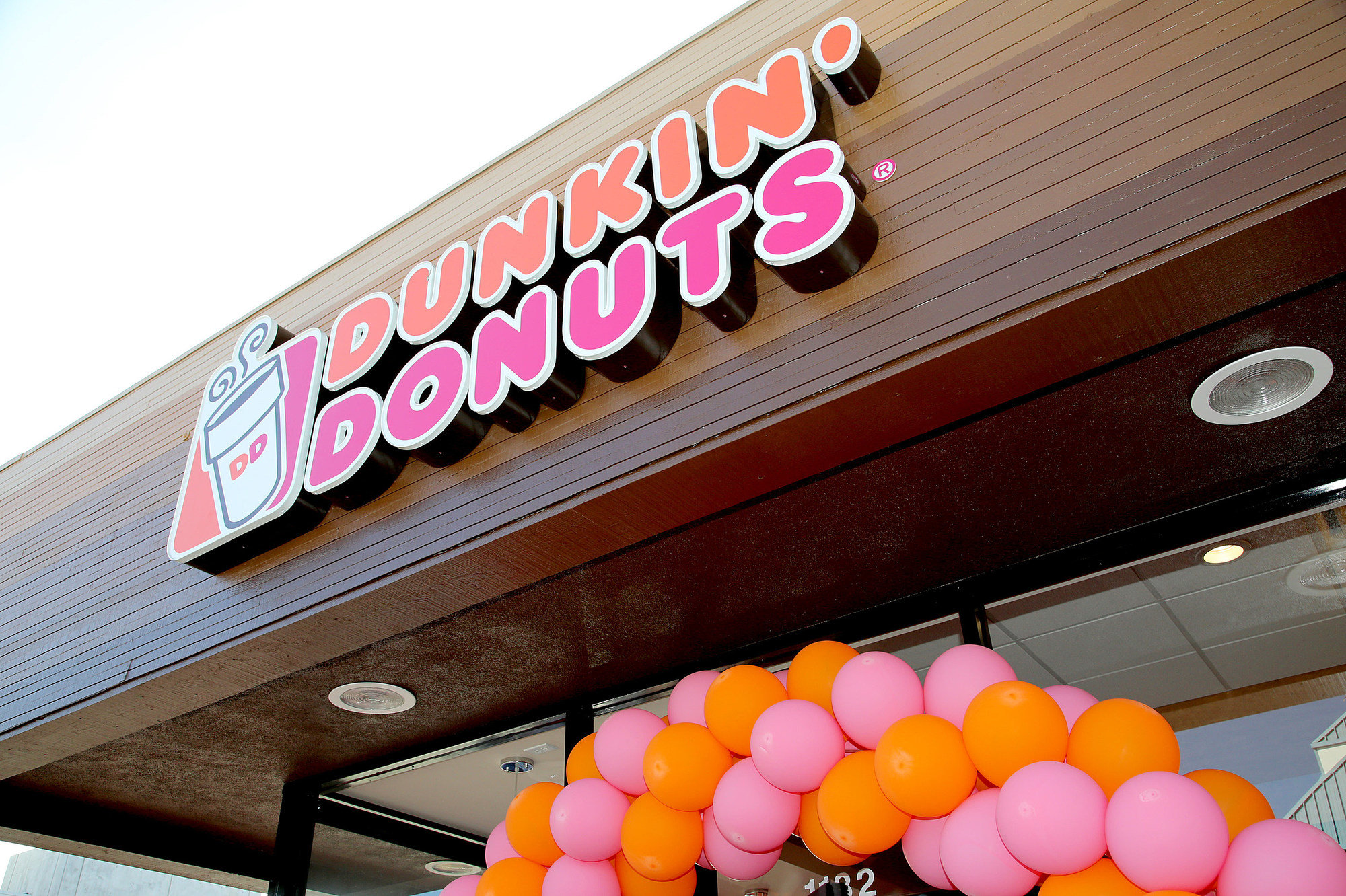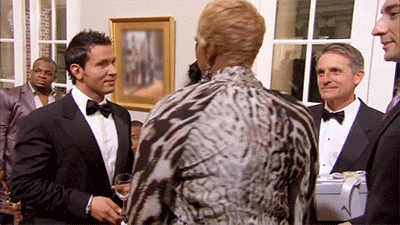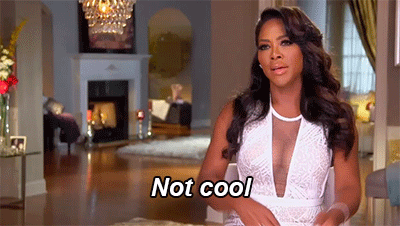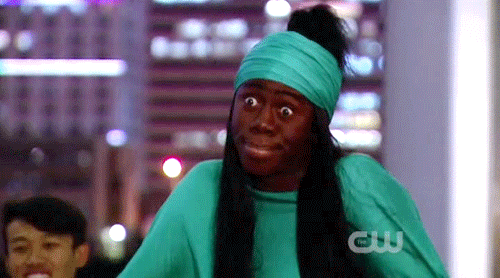
Dunkin' Donuts has stolen our hearts for years with fried dough, super-cheap breakfast specials, and always hot coffee. Now the brand might be in hot water, because a lawsuit has been filed by a former employee for allegations of racial discrimination in the workplace.
Jacqueline Quiñones, who identifies as Puerto Rican, filed a lawsuit against a Dunkin' Donuts location in Miami, on the basis of "discrimination and retaliation," as reported by local news outlet Miami New Times.
Quiñones alleges that she endured racist comments about her kinky hair and dark skin from coworkers and managers while working there in 2016.
The harassment allegedly began shortly after she started working at Dunkin' Donuts, when a district manager inquired about where she is from. She responded that she was Puerto Rican, and the individual made sure to inform coworkers and the general manager of the store.
The former employee shared that she was routinely harassed about her skin tone and hair texture after that, according to the complaint filed with Miami-Dade County.

“One of the store employees remarked that the plaintiff’s hair was ‘kinky’ and ‘too curly.’ The employee also said that she thought [the] plaintiff was 'black' and not Hispanic because her hair was so curly," the complaint reads.
"The employee also suggested that the plaintiff should get her hair straightened, to which she responded that she liked her hair and that she was proud of it. Plaintiff reported this incident to the manager, and the manager responded that ‘there are always two sides to a story’ and the ‘employee did not mean anything by it.’"
"They also called her 'Negrita,'" her lawyer, Lowell Kuvin of the Miami Employment Law Firm, told Revelist.

Negrita is Spanish for "little black girl" and can be used in both offensive and non-offensive ways.
"The way it was being used at work was derogatory," Kuvin asserted.
"She told them she didn’t like that term and they continued to use it. They were like, 'Oh why, what’s wrong with that?’ Taking a passive-aggressive [stance]. The way it was being used at work was, ‘The little black girl has to clean the bathroom. The little black girl has to mop the floor. The little black girl has to clean the windows.' "
Quiñones was primarily assigned cleanup tasks and was rarely allowed to make drinks or fulfill any other requirements.
“During her employment with Dunkin’ Donuts, plaintiff’s supervisor and the company refused to further train her on the machinery and pertinent equipment due to several discriminatory reasons,” the complaint details. “Plaintiff’s duties to work with machinery and to complete tasks were given to employees outside of her protected class because ‘they have been trained.’
"So when she failed at using the machines to make certain types of drinks, they tried to use that as [part of] the basis of letting her go," Kuvin shares.
The harassment continued until her Dunkin' Donuts manager stopped giving her hours altogether with no formal conversation or termination notice.
“She proactively called, texted, and sent emails [to] ask when she was going to be placed back on the schedule again and why she was no longer working there," Kuvin explains.
Her managers never responded to her messages, according to the complaint. Quiñones began working for Dunkin' Donuts on March 8, 2016. Her last day was April 13, 2016.
"She then had an issue getting her last paycheck as well," Kuvin revealed.
No longer able to afford her dwelling, Quiñones began living in her car until she secured a spot at a shelter.
Revelist reached out to Dunkin' Donuts about the lawsuit. This statement was provided by the senior manager of public relations, Justin Drake.
"All Dunkin' restaurants are independently owned and operated by individual franchisees who are solely responsible for making their own business decisions. They are required by their franchise agreement to comply with all applicable laws. The plaintiff in this suit was not an employee of Dunkin’ Brands. We are unable to comment further on pending litigation."
The hatred that Quiñones experienced is not a rare incident. We live in a time when natural hair is routinely under attack in schools and in the workplace.
New Jersey high school wrestler Andrew Johnson was required by a referee to cut his locks or risk forfeiting a match in December 2018.
Sixth-graders Faith Fennidy and Tyrelle Davis were sent home from their Catholic school in Louisiana because their braids violated school policy.
Journalist Brittany Noble Jones left her job with the WJTV station in Mississippi after being told repeatedly that her natural hair was "unacceptable" and that she needed to straighten it so viewers could see a "beauty queen."
While Quiñones isn't alone in this struggle, she is one of the most blatant examples of how dangerous white beauty standards can be to a person's entire livelihood.

Quiñones is one of many working-class people who work hard and rely on an hourly wage to keep a roof over her head. Having to navigate environments where people can play with your finances based on their hatred is systemic racism in one of its most disgusting forms.
It happens so often that the state of New York had to pass a law to ban discrimination against textured hair specifically in workplaces, schools, and other public settings. New York recently updated and passed its New York City Human Rights Law (NYCHRL) that directly ties hair discrimination to racial discrimination. The law specifically "protects the rights of New Yorkers to maintain natural hair or hairstyles that are closely associated with their racial, ethnic, or cultural identities."
It's also important to acknowledge the specific struggle that people in the Latinx community often experience when they have African features (i.e. kinky hair and dark skin).
They often have to endure people challenging their identities. People make ignorant comments about them not being light enough to be Latinx. They question their hair texture and grill them about where they're "really" from. People seem to be really vexed by a Latinx person who does not have features that are as close to European beauty standards as possible.
From questions about what an "Afro-Latina" is to the invasive inquiries about their parents to name-calling, it's simply not the easiest experience. Sometimes — as evidenced by Quiñones's short time at this Miami Dunkin' Donuts — things can get incredibly ugly.
Let's all hold out hope that the Florida justice system will settle things properly for Jacqueline Quiñones and hold this particular Dunkin' Donuts location fully accountable for how it mercilessly turned her life upside-down.

We need every individual state to update its laws so that black and brown people are better protected from these terrible outcomes. Currently, so many states have legislative blindspots. Sure, "equal opportunity employment" has become a standard on paper, but our world clearly needs things spelled out better so that racial discrimination in all its forms cannot continue to play in these gray areas.
Why is our country so repulsive that you could celebrate having a new job, and then just over a month later, be phased out because your boss thinks you're too dark to be there? It is 2019. America really needs to grow up.




